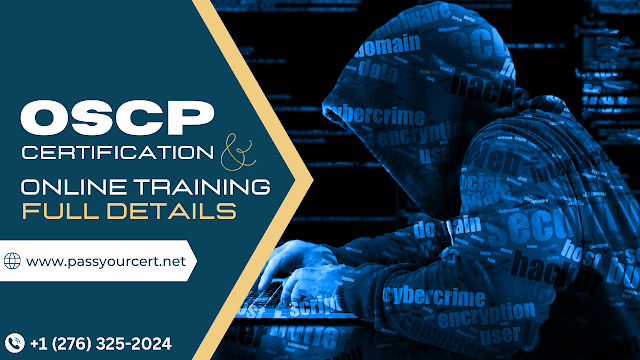Decoding PGMP Certification: A Comprehensive Overview
The road to professional progression, industry recognition, and increased project and program management skills may be paved with credentials. The Program Management Professional (PGMP) credential stands out as a mark of distinction in program management among the esteemed qualifications. This comprehensive lesson provides an in-depth understanding of the PGMP certification. It examines its significance, requirements, benefits, and other factors, making it an ideal resource for those considering or learning more about it.
What Is PGMP Certification?
The Project Management Institute (PMI) awards the Program Management Professional (PGMP) certification, a well-respected credential. It is intended for seasoned program managers who are in charge of overseeing several projects and making sure they adhere to organizational objectives. PGMP certification demonstrates your ability to manage and deliver complex programs effectively.
Why Pursue PGMP Certification?
1. Industry Recognition
PGMP certification is respected worldwide and recognized by organizations across industries. Achieving this Certification signals your commitment to excellence in program management.
2. Career Advancement
PGMP certification can open doors to senior program management roles and increase earning potential. It's often a prerequisite for top-level positions.
3. Enhanced Skills
The certification process thoroughly examines your program management knowledge and skills, helping you become a more capable program manager.
4. Networking Opportunities
Joining the community of PGMP-certified professionals provides valuable networking opportunities and access to industry insights.
PGMP vs. PMP: What's the Difference?
One common question among aspiring program managers is how the PGMP certification differs from the Project Management Professional (PMP) certification. Let's clarify:
PMP Certification
- Focuses on project management.
- Ideal for individuals managing individual projects.
- Demonstrates proficiency in project management processes.
- Requires fewer years of professional experience (typically three to five years).
- Covers a broad range of project management knowledge areas.
PGMP Certification
- Focuses on program management.
- Designed for those managing multiple projects within a program.
- Demonstrates the ability to manage complex programs that align with organizational objectives.
- Requires more extensive professional experience (typically seven to ten years).
- Emphasizes program management domains and principles.
PGMP Certification Requirements
To qualify for PGMP certification, you must meet specific eligibility requirements:
1. Education
- a secondary education, such as a high school diploma, an associate's degree, or something comparable, and at least seven years of project management expertise.
- a bachelor's degree or equivalent from a four-year university plus four or more years of project management expertise.
2. Experience
You must have at least four years (for a four-year degree holder) or seven years (for a secondary degree holder) of project management experience, with 4,500 hours leading and directing projects.
3. Program Management Experience
You need at least four years of program management experience, with 7,500 hours leading and directing programs.
4. Professional Development Units (PDUs)
Before applying for the PGMP exam, you must earn 21 PDUs in program management education.
The PGMP Certification Process
The PGMP certification process involves several steps:
1. Application
- Complete the online application on the PMI website, providing details of your education and professional experience.
- PMI will review your application and confirm your eligibility.
2. Exam
- Once your application is approved, you'll receive an eligibility ID to schedule your PGMP exam.
- The PGMP exam consists of 170 multiple-choice questions and must be completed within four hours.
3. Exam Preparation
Adequate Preparation is crucial for success. Consider the following tips:
- Use official PMI study materials.
- Take advantage of practice exams.
- Create a study schedule and stick to it.
- Join a study group for support and knowledge sharing.
4. Exam Day
- Arrive early at the exam centre.
- Read questions carefully and manage your time effectively.
- Review your answers before submitting the Exam.
5. Maintaining Certification
To maintain your PGMP certification, you must earn 60 Professional Development Units (PDUs) every three years. These PDUs can be made through various activities, including continuing education, volunteering, and seminars.
Benefits of PGMP Certification
Earning the PGMP certification comes with a multitude of benefits:
1. Expertise Validation
PGMP certification demonstrates your expertise in program management, earning the trust and respect of colleagues and employers.
2. Career Opportunities
PGMP-certified professionals are well-positioned for leadership roles, including Program Manager, Director of Program Management, and Chief Program Officer.
3. Salary Enhancement
PGMP certification often leads to higher earning potential, with PGMP-certified professionals commanding competitive salaries.
4. Global Recognition
PGMP is recognized globally, making it an asset for professionals seeking international career opportunities.
5. Networking
Joining the community of PGMP-certified professionals provides opportunities for networking and knowledge sharing.
Challenges and Tips for PGMP Certification
While pursuing PGMP certification is rewarding, it comes with its challenges:
1. Rigorous Exam
The PGMP exam is comprehensive and challenging. Be prepared to invest time and effort in exam preparation.
2. Experience Requirements
Meeting the experience requirements can be a barrier for some. Consider gaining experience through volunteer work or mentoring.
3. Continuous Learning
To maintain your Certification, you must commit to continuous Learning and professional development.
Conclusion
Earning the Program Management Professional (PGMP) Certification might significantly boost your program management career. It establishes your knowledge, provides access to new possibilities, and elevates you to the top echelon of program managers. However, obtaining PGMP accreditation is no easy task. It calls for commitment, a wealth of expertise, and meticulous exam preparation. Starting your road toward PGMP certification is a smart move if you're up for the challenge and want to advance your career in program management. It's an investment in your future that has the potential to pay off greatly in terms of professional Recognition and job success.

%20656-0395%20(3).png)

Comments
Post a Comment